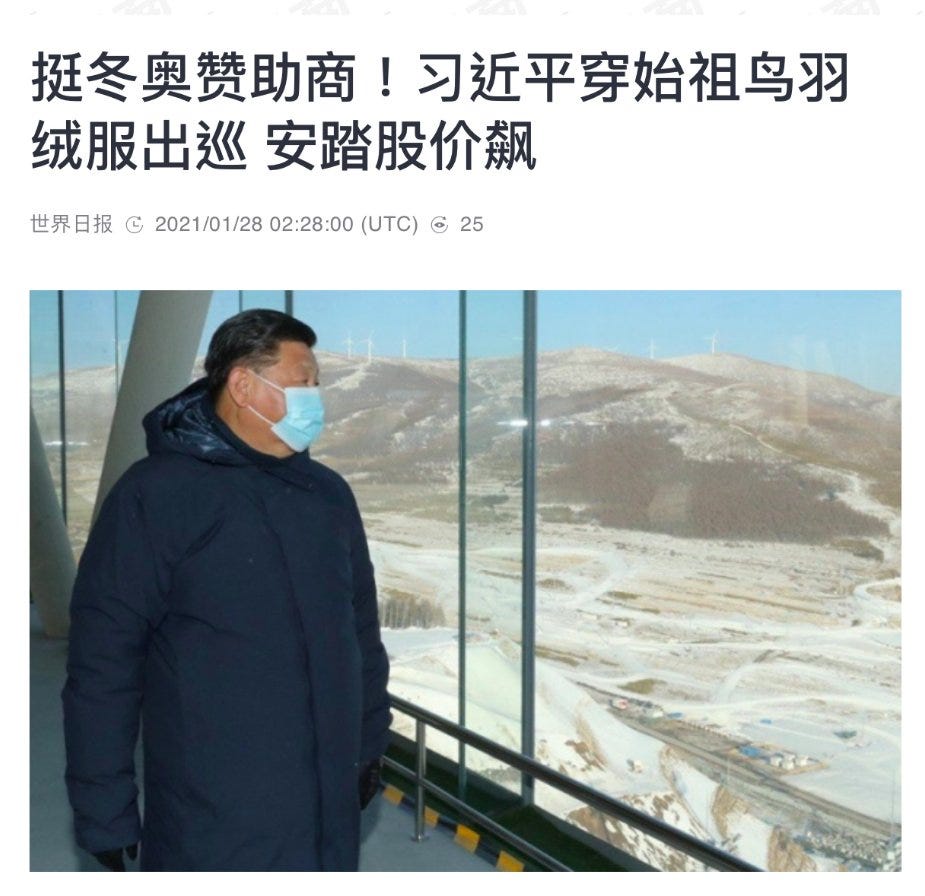2024 Chinese Tech and Overseas Themes I'm Watching
EV race, Shein IPO, Amer+Anta, Miniso, and Roborock
Dear readers,
Happy New Year! I just got back from Italy, and what a trip! I saw tourists sporting Huawei and Oppo phones at the ancient ruins of Pompeii, stumbled upon not one but two Miniso stores in Naples, paid tribute at the Patheon to the QUEEN who gave the world Margherita pizza (God bless you, Margherita Savoia), and experienced firsthand the passion of Neapolitan soccer fans at the Napoli vs. Monza match (a nail-biting 0:0). But yes, I came out in one piece!
And I gave a lot of thought to the themes of 2024 while in transit, and here is a running list of things I will pay close attention to:
The Global EV Race
In 2023, China's electric vehicle (EV) sales exceeded nine million units, a staggering six times more than the U.S. Chinese EV companies like BYD, XPeng, and Nio have been eyeing the U.S. and EU markets for a while.While they employ sophisticated marketing and customer segmentation strategies in China, their entry into EU and U.S. markets has been challenged. In 2023, Nio's CEO criticized U.S. protectionism in a Financial Times interview. Nio plans to enter the U.S. market by 2025 with premium, China-made EVs as part of a goal to expand to 25 countries and regions. Interestingly, they don’t plan to set up U.S. production sites despite incentives (The incentives require EVs to be made in North America with domestic batteries, which puts carmakers importing vehicles at a disadvantage). Observing how their overseas reputation management and stakeholder engagement strategies evolve in 2024 will be interesting.
Chinese Cross-Border E-Commerce and Retailer Competition
The competition for market share is heating up among Chinese e-commerce platforms like Temu, Shein, and TikTok Shops, especially against established players like Amazon. Sustainable growth is the key theme. TikTok Shops is slashing subsidies and will try to differentiate itself from its competitors. (here’s a recent tweet on this topic) The likely losers in this battle are companies like Dollar Tree and Etsy in the U.S. market.A company to watch is Miniso, a US-listed Chinese variety store. Despite its low profile, Miniso has aggressively expanded its brick-and-mortar presence overseas. With half its 5400 outlets located internationally, it aims to open 1500 stores in the U.S. alone. (Source)
The Quiet Chinese Robot Giants: The true success stories among Chinese companies expanding overseas, particularly those that have downplayed their origins and grown their sales, are robot vacuum brands like Ecovacs and Roborock. They are dominating the U.S. and EU markets and eating iRobot's lunch. Their market valuations have skyrocketed, indicative of their growing influence. For instance, Roborock's overseas revenue now accounts for over half of its total, soaring from USD 87.15M in 2019 to $504.6M in 2022. Eschewing a heavy emphasis on corporate narrative, they prioritize product PR and influencer-driven campaigns to boost sales. Smaller and more niche robot vacuums are also coming for a slice of the US-EU markets, and we can see the level of interest from the number of press releases that come out of CES this year.
Two IPOs: Shein’s IPO and Amer Sports IPO.
Shein IPO: Shein's confidential filing has already gotten much media attention, with scrutiny expected to increase in the coming months. On January 3rd, Senators Rick Scott and Bob Casey expressed concerns in a letter to the NYSE and Nasdaq CEOs, highlighting risks to American investors. They raised issues regarding unethical business practices, labor conditions, corporate governance, and financial transparency. The Select Committee and 16 Republican attorneys general have urged the SEC to scrutinize Shein's supply chain for forced labor. Shein faces a challenging path ahead in winning the trust of U.S. regulators and shifting public perception.
Amer Sports IPO: As a subsidiary of China's Anta Sports (a USD 25B China homegrown sports apparel behemoth), Amer Sports owns many high-profile international brands, including Wilson, Salomon, Arc’teryx, etc. Anta has a huge influence over these global brands through Amer and has flown under the radar for as long as it has. The Amer IPO will shed light on the relationship with its parent and potential thorny China connection issues. After all, Anta’s influence got President Xi to wear a puffer jacket from Amer-owned brand Arc’Teryx.
Amer generates a third of its production value in China and will have to answer questions about labor practices and supply chain management. The executive teams at Anta and Amer are also highly intertwined, a potentially thorny governance/China connection issue for its U.S. IPO.
Planning a thorough analysis piece on Anta + Amer with the inimitable Following the yuan. Stay tuned.
Since it’s the beginning of a new year and we are all in the mood for resolutions, I want to leave you with this quote from my treasured source of constant inspiration Maria Popova. Cheers to a year of clarity, overcoming our fear of uncertainty, and going for it. As always, thank you for reading.
Ivy Yang is the founder of Wavelet Strategy, a New York-based strategic communications and reputation management company. She writes a Financial Times Chinese column called 话语权时代, and Calling the Shots: Bridging the U.S.-China Communication Gap, stories of wins and fails. Learn more about why she writes and what she writes, click here.






LOL Chinese brands tend to be the common thing we noticed in our trips! I was in Kazakhstan's Almaty before EOY and saw a teenager carrying a Miniso shopping bag, also saw two Xiaomi stores, two Lining stores during my visit there.
Are we the only one who's counting these things?